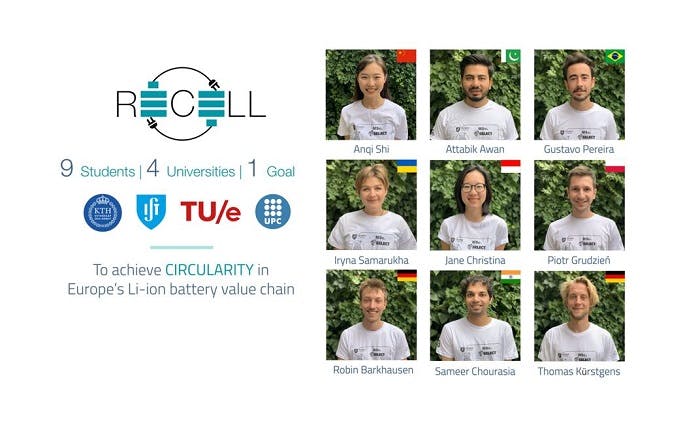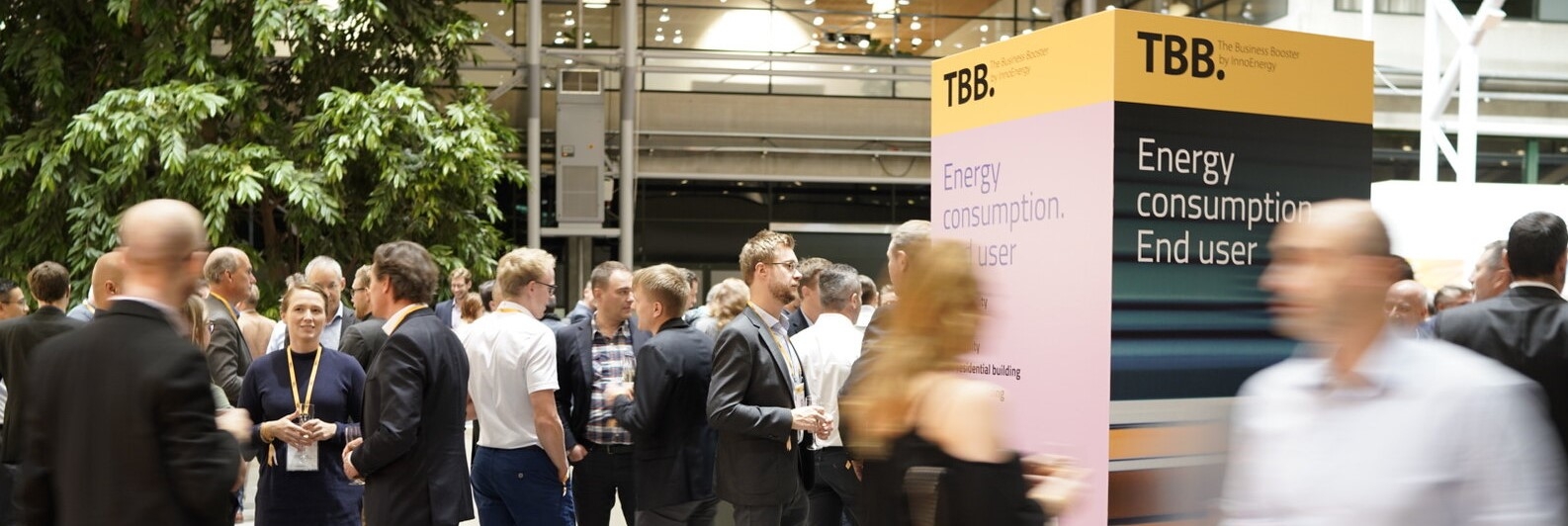EIT InnoEnergy Master School students aim to revolutionise Europe’s Li-Ion battery value chain

If electric vehicles are the future, then what are we going to do with all of those batteries? A motivated team of nine EIT InnoEnergy Master’s in Environomical Pathways for Sustainable Energy Systems students are working towards a viable solution. The aptly named Project ReCell was founded in June 2019 as their Integrated Project of the Year (IPoY). You can meet the International dream team here. They set out to make an essential contribution towards circularity in the EU li-ion battery value chain – by collaborating with industry partners to delve deeper into areas of policy-making, battery recycling and repurposing technologies, industry best practices and business opportunities. The result? So far, Project ReCell is well on its way to having a significant impact on the carbon footprint of the batteries – and looking to evolve into a business opportunity.
Industry Partnerships
Big tasks need strong collaboration. ReCell’s main partners include the European Battery Alliance (EBA) as an industrial collaborator, as well as the International Energy Agency (IEA). The industrial development programme of the EBA, the EBA250, is managed by EIT InnoEnergy. This project-driven community brings together more than 400 industrial and innovation actors, from mining to recycling, with the common objective of building a strong and competitive European battery ecosystem. The team shared, “The EIT InnoEnergy community offered tremendous support in the formation of our partnership with the EBA – one of the key milestones of our project. Through this collaboration, we’ve gained access to a wide range of stakeholders within the EBA250 community.”
Studying in Europe
The team describes their experience of studying in Europe as: “nothing short of spectacular.” They elaborate further: “The EU is putting great effort into building up its li-ion battery manufacturing industry, which offers us some unique advantages. Firstly, our project focuses on the EU, so studying here allows us to be near the local industry and gives us easy access to information regarding different EU regulations and stakeholders. Secondly, the EIT InnoEnergy Master School offers us the opportunity to study in seven of the best universities across the continent; which gives inherent credibility to our project and enables us to forge collaborations with players in multiple countries. Lastly, as a leader in the transition to sustainable energy, the EU has been at the forefront of the movement towards carbon neutrality. Thus, Europe has undoubtedly been the perfect place to embark on this quest with Project ReCell.”
Milestones and plans
Currently, Project ReCell is in the last phase with an impressive list of milestones. These include thorough policy analysis of battery regulations (with prepared amendment recommendations), massive project outreach, and the development of a comprehensive analysis report (through collaboration with academic researchers, policy consultants, EV manufacturers, battery collection companies and second-life battery providers and users). The team is collaborating with the IEA on a research study and the findings will be published in the Global EV Outlook 2020. In addition, their next steps:
- Develop a product which solves some of the identified problems for the industry to process and handle end-of-life Li-ion batteries. This entails exploring business opportunities and initiating a business incubation process.
- Continue to increase knowledge and raise awareness about the topic by researching and publishing the latest developments within the battery industry.
- Disseminate the project further using various platforms for greater outreach.
- Further foster collaboration with the EBA and the IEA.
Although the project was meant to end by mid-May 2020, the team is extremely motivated to carry on further and look at business viability. As they share, “The best-case scenario would be a start-up being born out of the project so that we can execute our ideas to create meaningful impact. The Li-ion battery industry, especially when it comes to EVs – provides lots of exciting opportunities to be tapped!” If EVs are indeed the next big thing, then ReCell is poised to play a large role in making their batteries sustainable.
You can follow the team’s progress here on Twitter (@Recell_eu) and LinkedIn: ReCell or contact them to collaborate at: recell.eu@gmail.com

